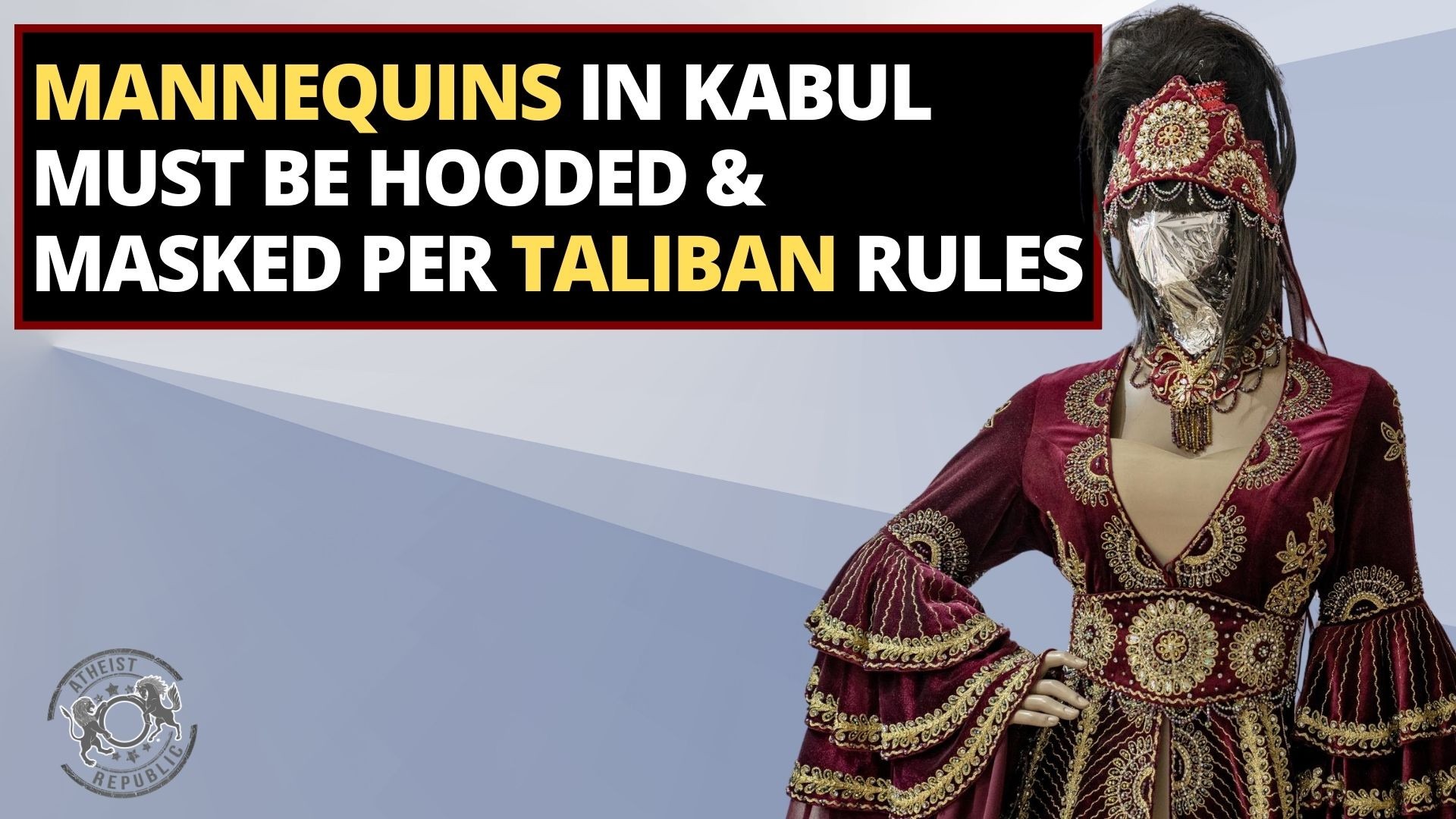
In 2021, the Taliban’s Ministry of Virtue and Vice ordered sellers in Afghanistan to remove mannequins from their shops or behead them. The decree was based on an Islamic doctrine forbidding statues and images in human form since they could be worshipped as idols.
However, while some sellers followed the rules, other shopkeepers pushed back from this strict policy, claiming that they would be unable to display their clothes correctly for sale or they would need to destroy valuable mannequins. The Taliban then amended their decree to allow shopkeepers to keep their mannequins as long as their faces were covered.
Since the Taliban implemented this rule, dress shops in the capital Kabul have become a “haunting sight,” as described by the Associated Press. Mannequins were seen covered in black plastic bags, aluminum foil, or pieces of cloth.
In Afghanistan, now even the female mannequin’s faces must be covered.
The Taliban have ordered all shopkeepers to either behead female mannequins or cover their faces.
This is symbol of the Taliban's treatment of women in Afghanistan. Haunting. pic.twitter.com/2mwuL3gaEZ— Shabnam Nasimi (@NasimiShabnam) January 19, 2023
In a way, the mannequins became a symbol of the Taliban’s strict religious rule in the country. But the new law also allowed Kabul’s dress merchants to show their creativity to attract customers and show small resistance to the regime.
The policy posed a challenge to them since they would need to obey the strict law and bring customers to their shops simultaneously.
In Lycee Maryam Street, a middle-class street in northern Kabul lined with shops selling clothes, merchants found plenty of ways to cover up the faces of their mannequins creatively. This street's showrooms and shop windows are filled with mannequins modeling evening gowns and traditional dresses of various colors, each with unique head coverings.
Shopkeepers pleaded to the Taliban to let them display products, otherwise it would destroy their businesses (shopkeepers are all men, by the way). This was the Taliban’s solution for appeasing the businesses, but to hide the mannequin’s faces.
— Sara Wahedi (@SaraWahedi) January 18, 2023
For instance, a shop featured mannequins covered with sacks made from the same type of cloth used for the traditional dress they modeled. One of the mannequins wore a purple dress with cowrie shells and had a matching purple hood on its head. Another mannequin wearing a gold-embroidered red dress had a red velvet mask and a golden crown on its head, complementing the look.
"I can't cover the mannequins' heads with plastic or ugly things because it would make my window and shop look ugly," Bashir, owner of one of the dress shops in Kabul, told the Associated Press. Their report only identified him and other shopkeepers they interviewed by their first names to protect their security.
Things have mainly been harder for shopkeepers like him. Under the Taliban, Afghanistan has suffered a massive economic downturn, forcing almost everyone into poverty. For merchants like Bashar, their sales today are half what they used to be.
"Buying wedding, evening, and traditional dresses are no longer a priority for people. People think more about getting food and surviving," Bashar told AP.
Other shopkeepers, such as Hakim, covered the heads of their mannequins using aluminum foils, giving them and his merchandise a particular shine.
Another merchant, Aziz, told AP that agents from the Ministry of Virtue and Vice regularly check shops to see if they comply with their rules.
Shoppers also found the mannequins haunting, albeit in a different way. An Afghan woman named Rahima told AP of her sentiments regarding this matter.
“When I see them, I feel that these mannequins are also captured and trapped, and I get a sense of fear,” she told AP. "I feel like I see myself behind these shop windows, an Afghan woman who has been deprived of all her rights."
